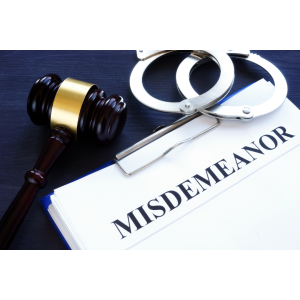Misdemeanor Aggravated DWI Cases
When facing a misdemeanor aggravated DWI charge in New York, the potential penalties can be severe. However, it’s important to remember that not all hope is lost. By understanding the role of mitigating factors, individuals charged with a misdemeanor aggravated DWI can explore avenues to reduce the penalties they may face. In this article, “Brooklyn DWI Lawyer” will delve into the significance of mitigating factors and how they can play a crucial role in achieving a more favorable outcome in misdemeanor aggravated DWI cases.
1 Understanding Misdemeanor Aggravated DWI:
- Defining Misdemeanor Aggravated DWI: Misdemeanor

aggravated DWI is a specific classification of DWI offenses
in New York. It typically involves driving with a blood alcohol
concentration (BAC) above the legal limit or exhibiting other
aggravating factors, resulting in heightened penalties comp-
ared to a standard misdemeanor DWI charge.
- Penalties for Misdemeanor Aggravated DWI: Before exploring mitigating factors, it is essential to understand the potential consequences associated with a conviction. These penalties may include fines, license suspension, mandatory alcohol education programs, ignition interlock device installation, and possible jail time.
2 The Role of Mitigating Factors:
- Defining Mitigating Factors: Mitigating factors are circumstances or evidence presented in a misdemeanor aggravated DWI case that can potentially reduce the severity of penalties imposed by the court. These factors aim to highlight elements that diminish the individual’s culpability or indicate a lower level of risk to public safety.
- Impact on Sentencing: Judges take into account mitigating factors during the sentencing phase to determine the appropriate penalties. By effectively presenting these factors, individuals charged with misdemeanor aggravated DWI can demonstrate their willingness to take responsibility, show remorse, and highlight their potential for rehabilitation.
3 Examples of Mitigating Factors:
- Lack of Prior Convictions: A clean prior criminal record, especially without any previous DWI convictions, can be a significant mitigating factor. It suggests that the individual charged has not exhibited a pattern of repeat offenses, indicating a lower risk of recidivism.
- Positive Character References: Character references from employers, family members, or community leaders can help portray the defendant in a positive light. These references can highlight the individual’s responsible behavior, good moral character, and contributions to society, strengthening the argument for reduced penalties.
- Completion of Alcohol Treatment Programs: Participation in alcohol treatment programs, such as counseling or rehabilitation, demonstrates a commitment to addressing any underlying issues related to alcohol consumption. Completion of these programs can be presented as evidence of the defendant’s efforts towards personal growth and rehabilitation.
4 Building a Strong Defense:
- Skillful Legal Representation: Engaging the services of a knowledgeable and experienced DWI defense attorney is crucial in identifying and presenting mitigating factors effectively. A skilled lawyer can assess the specific circumstances of the case, gather supporting evidence, and construct a strong defense strategy aimed at reducing penalties.
- Negotiating with the Prosecution: A proactive approach involving negotiation with the prosecution can lead to a plea agreement that considers mitigating factors. Skillful negotiations can result in reduced charges or alternative sentencing options that may significantly lessen the penalties associated with a misdemeanor aggravated DWI conviction.
Conclusion:
Mitigating factors play a vital role in misdemeanor aggravated DWI cases, offering individuals charged with such offenses the opportunity to reduce the severity of penalties they may face. By presenting compelling evidence of mitigating factors, working closely with a skilled attorney from “Brooklyn DWI Lawyer,” and engaging in strategic negotiations, individuals can increase their chances of achieving a more favorable outcome in their misdemeanor aggravated DWI cases. Remember, seeking professional legal guidance is crucial to effectively navigate the legal process and protect your rights.

